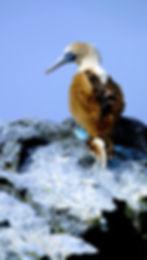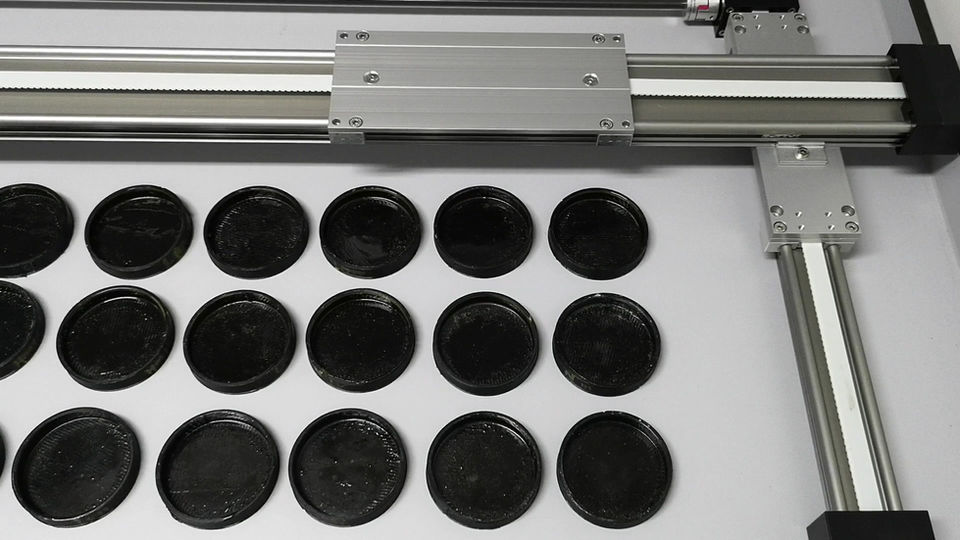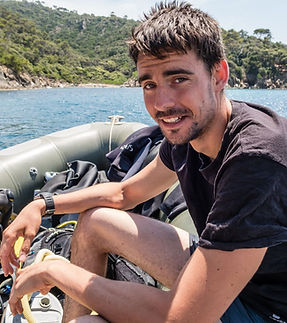
WELCOME TO THE
EEC GROUP

NEWS
The latest news on papers, grants, and members joining the group!
For regular news updates follow us on bluesky
OVERVIEW



WHAT WE DO
The experimental ecology & conservation group focusses on synthesising information from mathematical models, small-scale experimental systems, and long-term wild population data to learn more about the world around us, and in particular help make decisions about how to best preserve biodiversity into the future.
NOVEL TECHNIQUES
A specific focus is on developing new, exciting, and useful techniques to make the experimental systems we work with more realistic reflections of the world around us.
ITS ALL ABOUT THE BIG PICTURE
But our focus is always on how we can learn more about the natural world without having to carry out invasive or damaging experiments in the field.

Current research topics
1 / Multiple stressors and their impact on ecological forecasting
We study how multiple human-driven stressors, such as climate change and resource extraction, interact to shape wildlife populations. By integrating behaviour, health, demography, and population trends in predictive models, we identify species most at risk and provide science-based guidance for conservation and sustainable policy.
2 / Understanding resilience loss across space and through time
We quantify how and where ecosystems and wildlife populations remain stable or collapse under climate and land-use change. Integrating remote sensing, functional traits, niche theory and global time series, we identify resilience mechanisms, map vulnerability hotspots, and deliver decision-support tools for targeted, proactive conservation.
3 / Effectiveness of protected areas in maintaining resilience in wild populations
We evaluate how effectively protected areas sustain resilient, functioning ecosystems in a changing world. By integrating global biodiversity and population datasets with advanced analytics, we test whether protection strengthens resilience and functional diversity, and identify conditions under which protected areas truly safeguard nature’s contributions to people.
4 / Use of engineered organisms to restore environments
We develop safe, traceable engineered microorganisms to remove pollutants, restore degraded environments, and strengthen ecosystem resilience. Using advanced synthetic biology, realistic testing environments, and strict safeguards, we create interventions that work with nature while prioritising environmental safety and public trust.
5/ Feasibility of rewilding in the UK
We integrate ecology, social science, and economics to identify where reintroducing lost species is both ecologically viable and socially supported, mapping opportunities to restore ecosystem functions, boost rural economies, and guide evidence-based, conflict-sensitive rewilding and land-use decisions.
6 / Testing and developing conservation theory
We use controlled, spatially structured experimental ecosystems to rigorously test key ideas in conservation science, such as species distribution models and metapopulation theory. By linking theory to real-world dynamics, we identify when and how these tools can reliably guide management of threatened, invasive, and other priority species.

PEOPLE
Meet the Team
Alumni
Publications
Please give this list a second to load.

DATA
In line with the principals of open science and data sharing we are striving to make all the data that our lab group generates available via a github repository. This will take some time, but all data going forward will be uploaded to that site, and data from previous experiments (be that laboratory generated or simulation generated) will be made available as soon as possible.
JOIN THE GROUP
We are always looking for enthusiastic members to join the group, from masters students to post docs. Funding for these are available through a number of channels, depending on the career stage.
All opportunities will be posted on our bluesky account
Please feel free to contact me any time to discuss the possibility of apply for one of these schemes and joining our team.




Available positions
When positions are available links to the adverts will be placed here
CONTACT US
School of Biological Sciences
University of Bristol
Bristol Life Sciences Building
24 Tyndall Avenue
Bristol
England
BS8 1TQ
Publications
In press
-
Stewart, K, Venditti, C., Carmona, C., Baker, J., Clements, C., Tobias, J., González-Suárez, M. Threat reduction must be coupled with targeted recovery programmes to conserve global bird diversity, Nature Ecology and Evolution, in press
-
Vives-Ingla, M., Capdevila, P., Clements, C., Stefanescu, C., Carnicer, J. Novel Regimes of Extreme Climatic Events Trigger Negative Population Rates in a Common Insect. Global Change Biology, in press
-
Pringle, S., ... Clements, C., ... et al. Opportunities and challenges for monitoring terrestrial biodiversity in the robotics age. Nature Ecology and Evolution, in press
2024
-
Linke, L., Clements, C. A Sixth Mass Extinction? How linguistic uncertainty shapes our understanding of the biodiversity crisis. Ecology and Evolution 14 (12), e70653
-
Li, D., Clements, C., Memmott. J. Isolation limits spring pollination in a UK fragmented landscape. PLos one, 19 (9), e0310679
-
Cerini, F., Jackson, J., Childs, D., Clements, C. Multivariate signals of population collapse in a high-throughput ecological experiment. Ecology, 105 (4), e4257
-
Johnson, T., Beckerman, A., Childs, D., Griffiths, C., Capdevila, P., Clements, C., Besson, M., Gregory, R., Evans, R., Thomas, G., Delmas, E., Webb, T., Freckleton, R. Overconfidence undermines global wildlife abundance trends. Nature, 628 (8009), 788-794
2023
-
O'Brien, D., Deb, S., Gal, G., Thackary, S., Dutta, P., Shin-Ichiro, May, L., Clements, C. Early warning signals require critical transitions in empirical lake data. Nature Communications, 7942.
-
Cerini, F., Wolfe, E., Besson, M., Clements, C. Phenotypic response to different predator strategies can be mediated by temperature. Ecology and Evolution, ece3.10474.
-
O'Brien, D., Deb, S., Sahil, S., Krishnan, N., Dutta, P., Clements, C. EWSmethods: an R package to forecast tipping points at the community level using early warning signals and machine learning models. Ecography, ecog.06674.
-
Stewart, K., Carmona, C., Clements, C., Venditti, C., Tobias, J., González-Suárez, M. Trait diversity metrics can perform well with highly incomplete datasets. Methods in Ecology and Evolution, 14, 2856-2872
-
Ledger, S., McRae, L., Loh, J., Almond, R., Boh, M., Clements, C. et al. Past, present, and future of the Living Planet Index. npj Biodiversity, 2, 12.
-
Li, D., Memmott, J., Clements, C. Corridor quality buffers extinction under extreme droughts in experimental metapopulations. Ecology & Evolution, in press.
-
Cerini, F., Childs, D., Clements, C. Timeline to collapse. Nature Ecology and Evolution, early online.
-
O'Brien, D., Gal, G., Thackary, S., Shin-Ichiro, S., Blanchard, J., Clements, C. Planktonic functional diversity changes in synchrony with lake ecosystem state. Global Change Biology, 29, 686-701.
-
Wolfe, E., Cerini, F., Besson, M., O'Brien, D., Clements, C. Spatiotemporal thermal variation drives diversity trends in experimental landscapes. Journal of Animal Ecology, 92, 430-441.
2022
-
Besson, M., Alison, J., Bjerge, J., Gorochowski, T., Høye, T., Jucker, T., Mann, H., Clements, C. Towards the fully automated monitoring of ecological communities. Ecology Letters, 25, 2753-2775.
-
Baruah, G., Ozgul, A., Clements, C. Community structure determines the predictability of population collapse. Journal of Animal Ecology, 91, 1880-1891.
-
Capdevila, P., Noviello, N., McRae, L., Freeman, R., Clements, C. Global patterns of resilience decline in vertebrate populations. Ecology Letters, 25 (1), 240-251.
-
Capdevila, P., Noviello, N., McRae, L., Freeman, R., Clements, C. Body mass and latitude as global predictors of vertebrate populations exposure to multiple threats. Ecography, 12, e06309.
-
Deb, S., Sidheekh, S., Clements, C., Krishnan, N., and Dutta, P. Machine learning methods trained on simple models can predict critical transitions in complex natural systems. Royal Society Open Science, 9: 211475.
-
Wolfe, E., Hammill, E., Memmott, J., Clements, C. Landscape configuration affects probability of apex predator presence and community structure in experimental metacommunities. Oecologia, 199, 193–204.
2021
-
O'brien, D., Clements, C. Early warning signal reliability varies with COVID-19 waves. Biology Letters, 17: 20210487.
-
Williams, N., McRae, L., Freeman, R., Capdevila, P., Clements, C. Scaling the extinction vortex: Body size as a predictor of population dynamics close to extinction events. Ecology and Evolution, 11, 7069-7079.
-
Baruah, G., Clements, C., Ozgul, A. Effect of habitat quality and phenotypic variation on abundance- and trait-based early warning signals of population collapses. Oikos, 130, 850-862.
-
Li, D., Clements, C., Shan, I., Memmott, J. Corridor quality affects net movement, size of dispersers, and population growth in experimental microcosms. Oecologia 195, 547-556.
2020
-
Arkilanian, A., Clements, C., Ozgul, A., Baruah, G. Effect of time-series length and resolution on abundance- and trait-based early warning signals of population declines. Ecology, in press.
-
Hammill, E., Clements, C. Imperfect detection alters the outcome of landscape scale management strategies for protected areas. Ecology Letters, 23: 682–691.
-
Baruah, G., Clements, C., Ozgul, A. Eco-evolutionary processes underlying early warning signals of population decline. Journal of Animal Ecology, 89:436–448.
2019
-
Clements, C., McCarthy, M., Blanchard, J. Early warning signals of recovery in complex systems. Nature Communications, 10:1681.
-
Recommended by F1000
-
-
Baruah, G., Clements, C., Guillaume, F., Ozgul, A. When do shifts in trait dynamics precede population declines? The American Naturalist, 193, pp. 633–644.
2018
-
Clements, C., Ozgul, A. Indicators of transitions in biological systems. Ecology Letters, 21, 905-919.
-
Recommended by F1000
-
-
Clements, C., Blanchard, J., Nash, K., Hindell, M., Ozgul, A. Reply to ‘Whaling catch data are not reliable for analyses of body size shifts’, Nature Ecology & Evolution, 2, 757–758.
2017
-
Clements, C., Blanchard, J., Nash, K., Hindell, M., Ozgul, A. Body size shifts and early warning signals preceded the historic collapse of whale stocks. Nature Ecology & Evolution, 1, 188.
-
Carlson, C., Burgio, K., ... Clements, C., ... , Getz, W. (2017). Parasite biodiversity faces extinction and redistribution in a changing climate. Science Advances, 3, e1602422.
-
Weissman, T., Davies, K., Clements, C., Melbourne, B. Estimating extinction risk with minimal data. Biological Conservation, 213, 194-202.
-
Brooks, M., Clements, C., Pemberton, J., Ozgul, A. Estimation of individual growth trajectories when repeated measures are missing. American Naturalist, 190, 377-388.
-
Pimiento, C., Griffen, J., Clements, C., Silvestro, D., Varela, S., Uhen, M., Jaramillo, C. The Pliocene marine megafauna extinction and its impact on functional diversity. Nature Ecology & Evolution, 1, 1100.
-
Cizauskas, C., Carlson, C., Burgio, K., Clements, C., Dougherty, E., Harris, N., Phillips, A. (2017). Parasite vulnerability to climate change: an evidence-based functional trait approach.Royal Society Open Science, 4: 160535.
2016
-
Clements, C., Ozgul, A. Rate of forcing and the forecastability of critical transitions. Ecology & Evolution, 6, 7787-7793.
-
Dougherty, E., Carlson, C., Bueno, V., Burgio, K., Cizauskas, C., Clements, C., Seidel, D., Harris, N. Paradigms for parasite conservation: adaptive approaches for a neglected target. Conservation Biology, 30, 724-733.
-
Pimiento, C., MacFadden, B., Clements, C., Velez-Juarbe, J., Jaramillo, C., Silliman, B. Geo- graphic distribution patterns of Carcharocles megalodon over time reveal clues about mechanisms of extinction. Journal of Biogeography, 43, 1645-1655.
-
Clements, C., Ozgul, A. Including trait-based early warning signals helps predict population collapse. Nature Communications, doi:10.1038/ncomms10984.
2015
-
Clements, C., Drake, J., Griffiths, J., Ozgul, A. Factors influencing the detectability of early warning signals of population collapse. The American Naturalist, 186, 50-58.
-
DeLong, J., Gilbert, B., ..., Clements, C., ..., O'Connor, M. The body-size dependence of trophic cascades. The American Naturalist, 185, 354-366.
2014
-
Palamara, G., Childs, D., Clements, C., Petchey, O., Plebani, M., Smith, M. Inferring the temperature dependence of population parameters: the effects of experimental design and inference algorithm. Ecology and Evolution, 4, 4567–4811.
-
McCarthy, M., Moore, A., Krauss, J., Morgan, J., Clements, C. Linking indices for biodiversity monitoring to extinction risk theory. Conservation Biology, 28, 1575-1583.
-
Pimiento C., Clements C. When did Carcharocles megalodon become extinct? A new analysis of the fossil record. PLoS ONE, DOI: 10.1371/journal.pone.0111086
-
Frantz, A., McDevitt, A., ..., Clements, C., ...., Burke, T. Re-visiting the phylogeography and demography of European badgers (Meles meles) based on broad sampling, multiple markers and simulations. Nature Heredity, 113, 443-453.
-
Clements, C., Collen, B., Blackburn, T., Petchey, O. Historic environmental change may affect our ability to infer extinction status. Conservation Biology, 28: 971–981.
-
Gilbert, B., Tunney, T., McCann, K., ..., Clements, C., ..., O’Connor, M. A bioenergetic framework for the temperature dependence of trophic interactions. Ecology Letters, 17, 902-914
-
Clements, C., Collen, B., Blackburn, T., Petchey, O. Effects of directional environmental change on extinction dynamics in experimental microbial communities are predicted by a simple model. Oikos, 123, 141-150
-
Editor's choice
-
2013
-
Clements, C., Warren, P., Collen, B., Blackburn, T., Worsfold, N., Petchey, O. Interactions between assembly order and temperature can alter both short and long-term community composition. Ecology & Evolution, 3(16): 5201–5208
-
Carlson, C., Cizauskas, C., Burgio, K., Clements, C., Harris, N. The more parasites, the better? Science, 342, p1041
-
Clements, C. Public interest in the extinction of a species may lead to an increase in donations to a large conservation charity. Biodiversity and Conservation, 22, p.2695-2699.
-
Clements, C., Worsfold, N., Warren, P., Collen, B., Blackburn, T., Clark, N., Petchey, O. Experimentally testing an extintion estimator: Solow's Optimal Linear Estmation model.Journal of Animal Ecology, 82, p345-354.
Theses
Clements, C. "Extinction and environmental change: testing the predictability of species loss". http://dx.doi.org/10.6084/m9.figshare.1158947
.png)





























